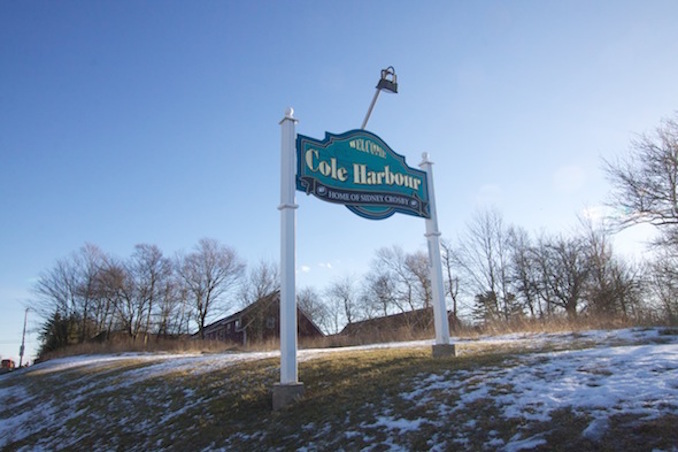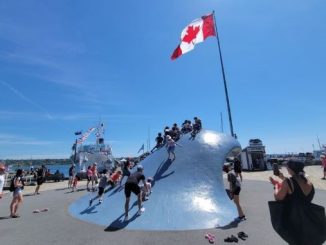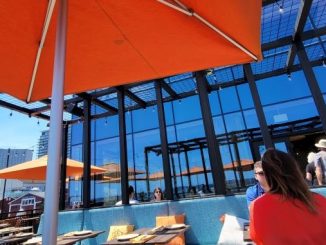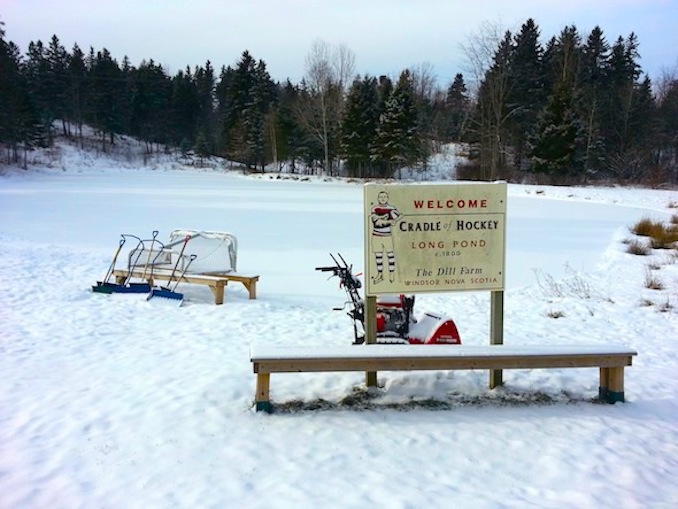
The third part of the hockey pilgrimage began upon my arrival in Halifax from Montreal. To see the first post CLICK HERE. – To see the second post CLICK HERE.
Halifax and Nova Scotia had a ton of sites to see and was the place that, to me, based on what I saw and read, seemed like the real start of the game of hockey. Some of the earliest sticks and pucks were made here, as well as the earliest written mention of the game being played. One of the earliest and biggest manufacturing company of ice skates was also in the area, just across the bridge in Dartmouth.
People adapt to their environments and one of the things I noticed most about Halifax, and Nova Scotia, is that it has a ton of really cool small ponds and rivers making it a breeding ground for the sport.
One of my first stops was Long Pond in Windsor, Nova Scotia. Thomas Haliburton was a prominent business man, judge and author of the immensely popular Sam Slick stories. He attended King’s College in the early 1800’s as a boy. His remembrance of “hurly on the long pond on the ice” is the oldest reference to the game being played in Canada, and is Nova Scotia’s biggest claim to the birthplace of hockey.
Today the pond is used for many big annual events as well as being available for shinny almost any time. As you can see, snowblowers, shovels, and a net are available for use.
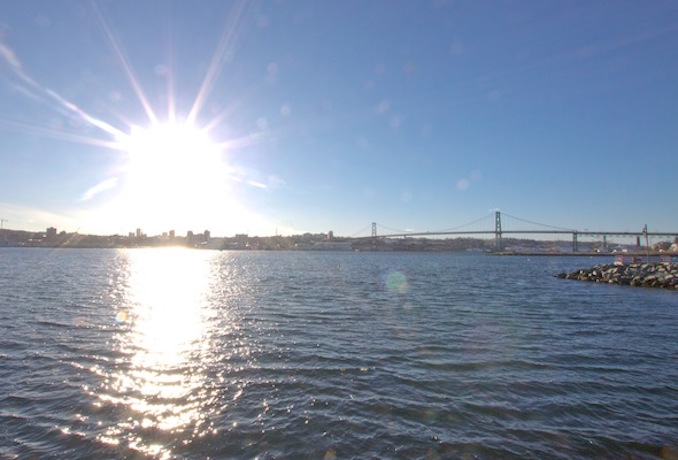
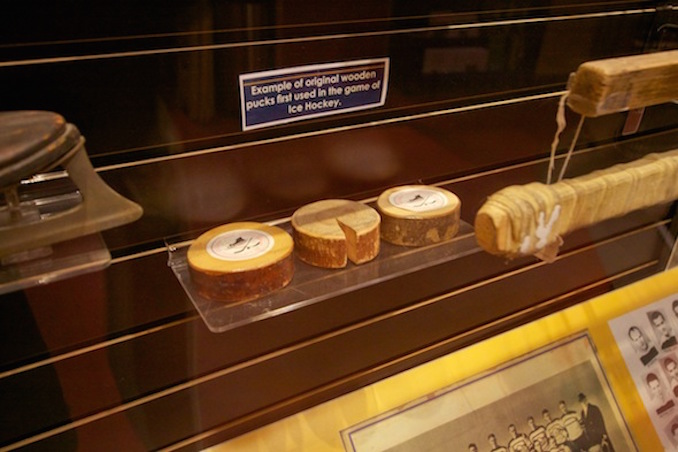
Our next stop was the Nova Scotia Sports Hall of Fame in downtown Halifax. The museum has many old and new artifacts from the history of hockey.
Hockey pucks, I found out, were once cut from the trunk of small trees to make the shape current pucks are designed after. Prior to this, balls or spherical objects were used.
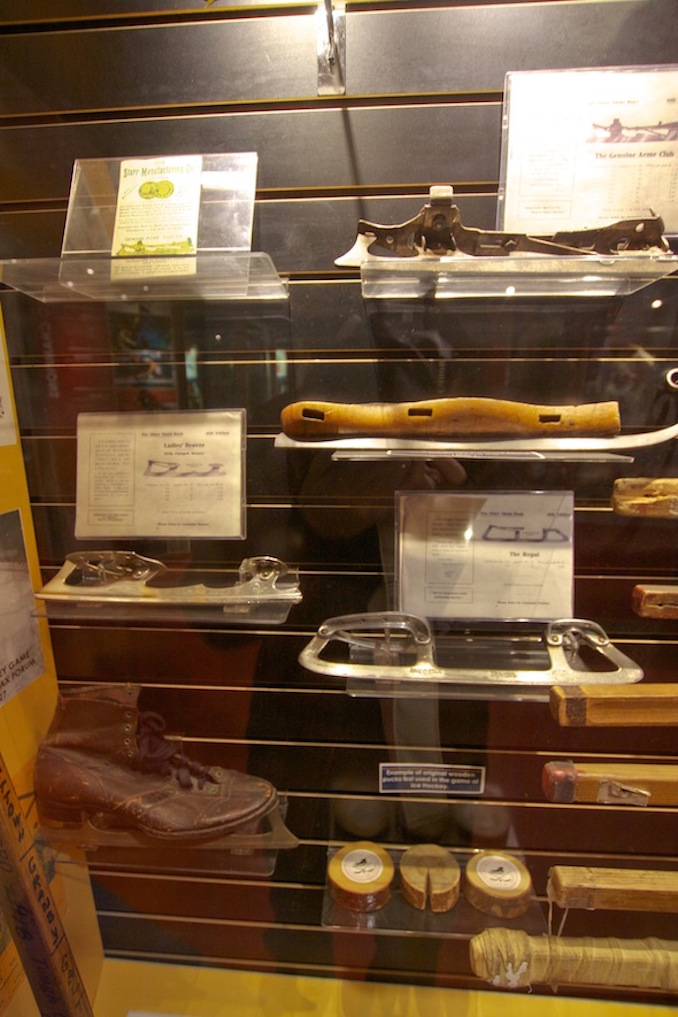
The Starr Manufacturing Company produced ice skates from 1863 – 1939 and sold millions of the skates around the world. Bauer hockey company actually was a shoe company at the time and they teamed up with the Dartmouth company to make a skate in which the blade was permanently secured to the boot. The first of its kind.
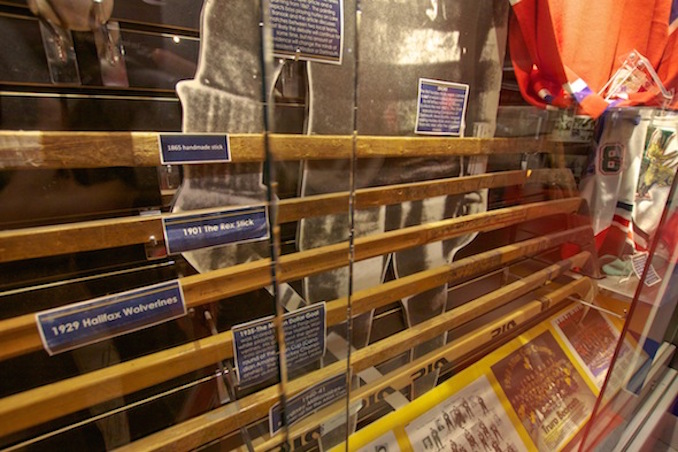
Hockey sticks in Nova Scotia were said to be made by the local Mi’qmac people indigenous to the area and were carved from Hornbeam trees. The museum had many sticks from the past 150 years, the oldest one dating back to 1865. References to people using and making the sticks on Lake Banook and Lake MicMac are abundant throughout hockey history readings, which is why we also pictured those locations. (pictures below)
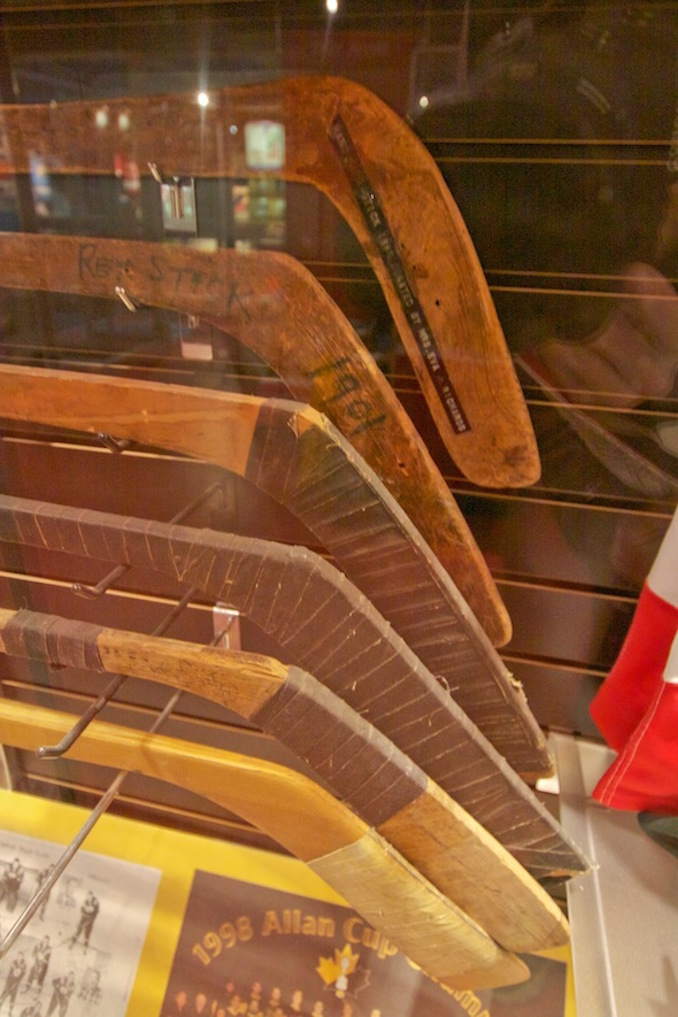
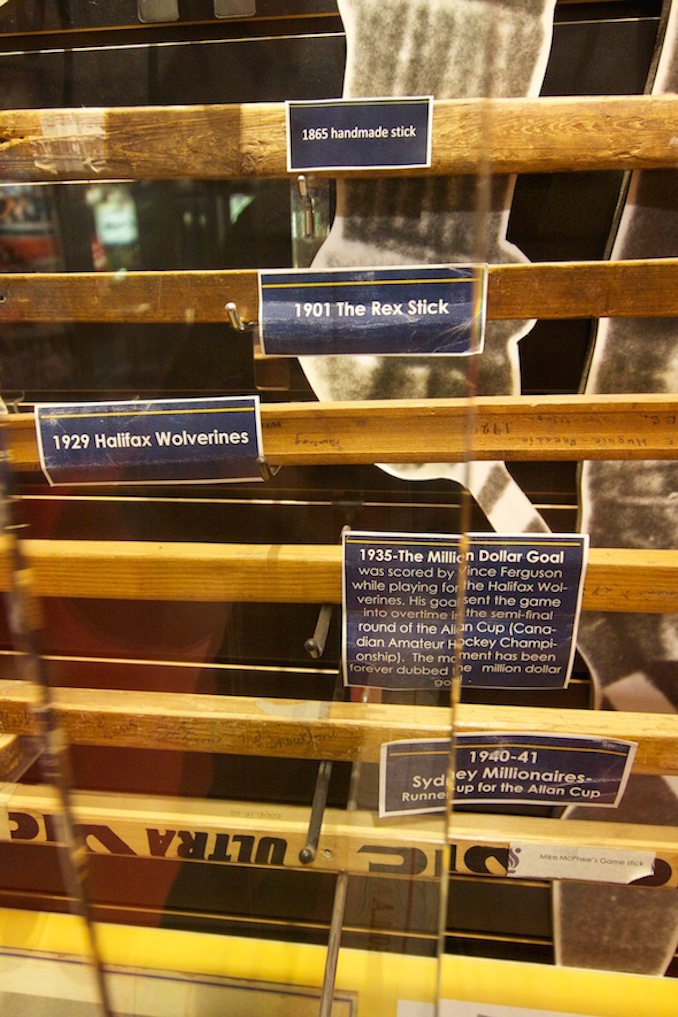
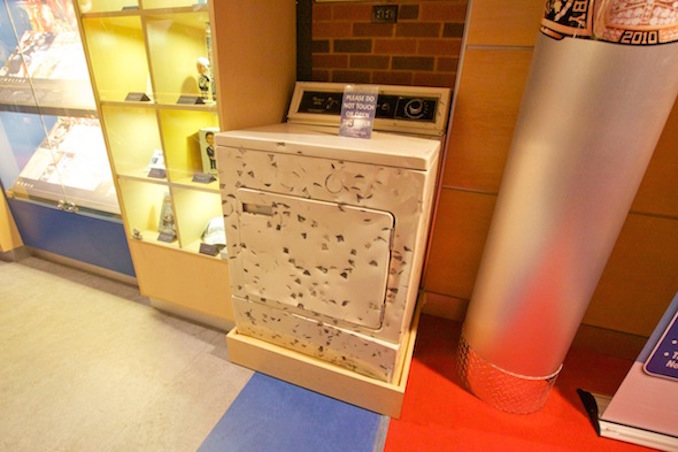
The Hall of Fame also had a shrine for Cole Harbour, Nova Scotia native Sidney Crosby. Artifacts that included his washing machine from his parent’s house, as well as many items from his already decorated career.
Crosby has stayed well involved in his home province with both the Hall of Fame and his home rink in Cole Harbour being decorated with his donations.
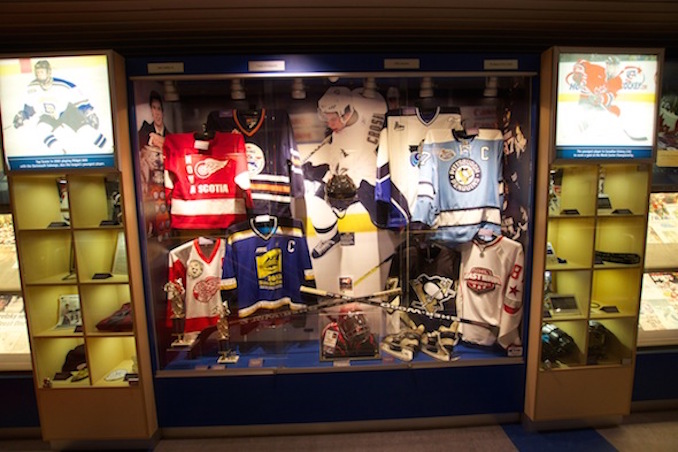
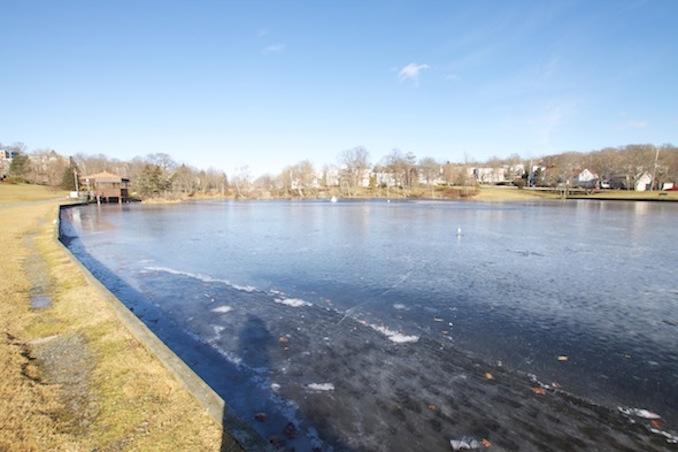
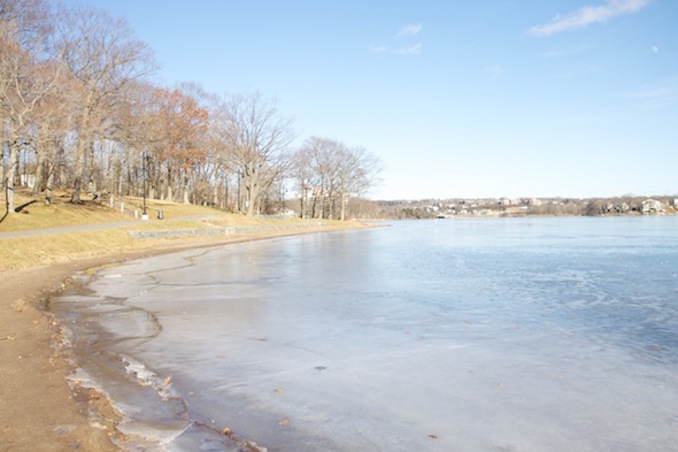
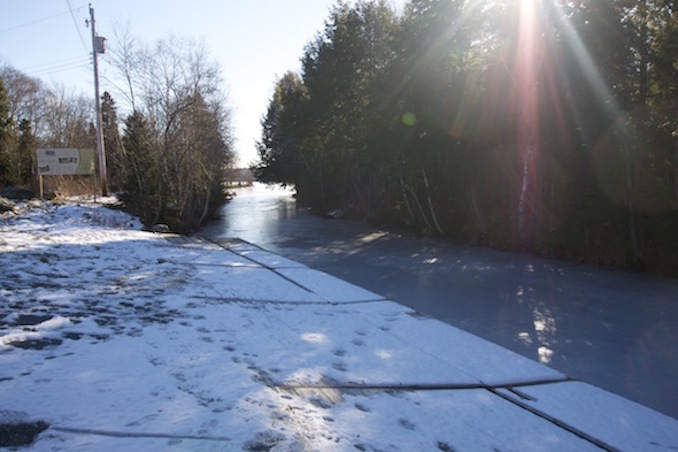
This lock connect Lake MicMac to Lake Charles via the river that runs through it. It would be an amazing ice skate from one Lake to the other if the lock did not separate the 2 rivers that run between the lakes. There is even a little landing to help you get on the river once you are strapped-in to your skates.
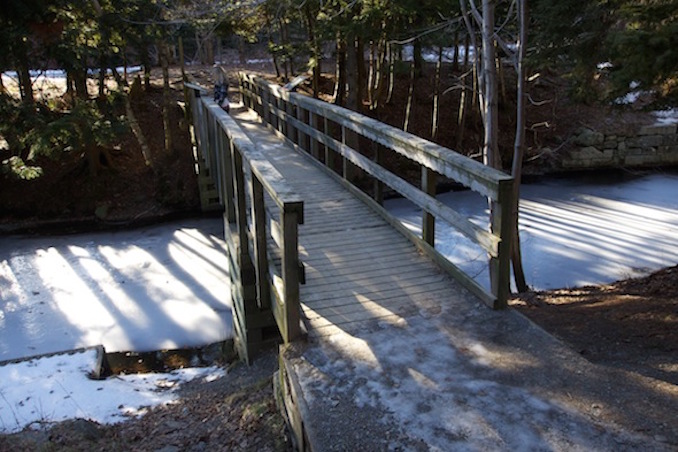
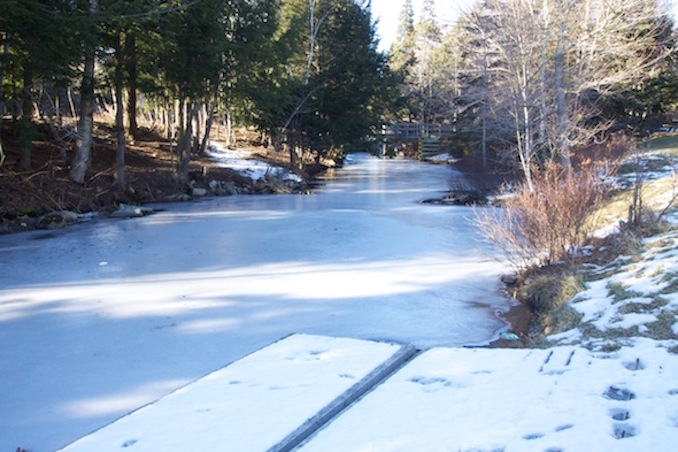

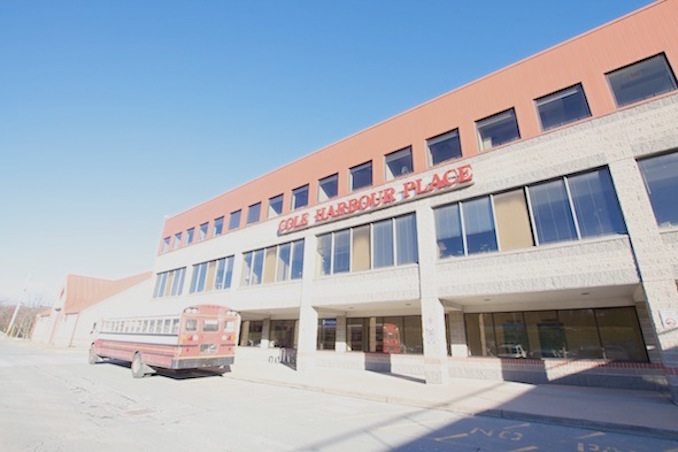


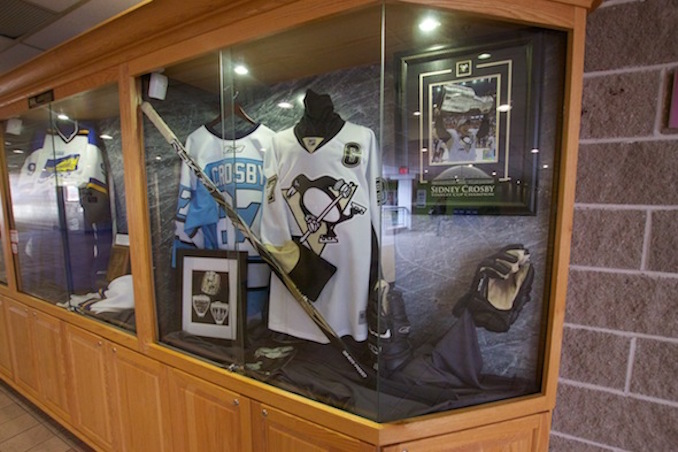
The rink inside Cole Harbour Place, the rink where Sidney Crosby played as a child, is now home to the next generation of players who will try to achieve their goals while the trophies of their hometown hero in glass displays around the arena show them what hard work and dedication can do.
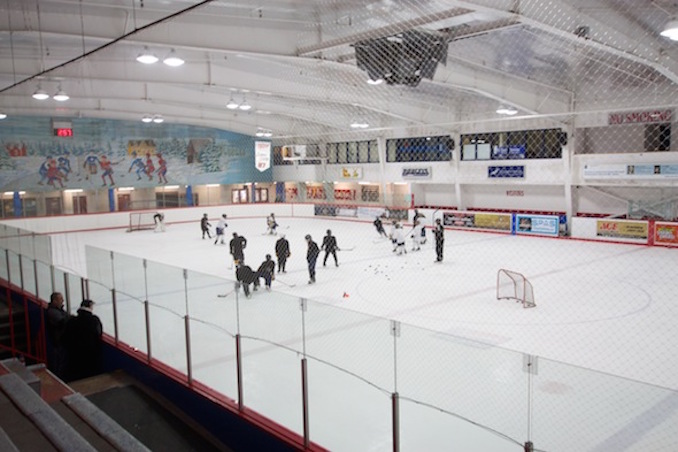

The home where Thomas Haliburton lived from 1836-1856 is now the site of the Museum that protects the hockey history of the town of Windsor, Nova Scotia. It is run by volunteers and is open on Saturdays during the winter and more frequently during the summer.
A great read to learn more about the history of the game in Nova Scotia and Canada is a book by Trevor J. Adams called ‘Long Shots‘.
